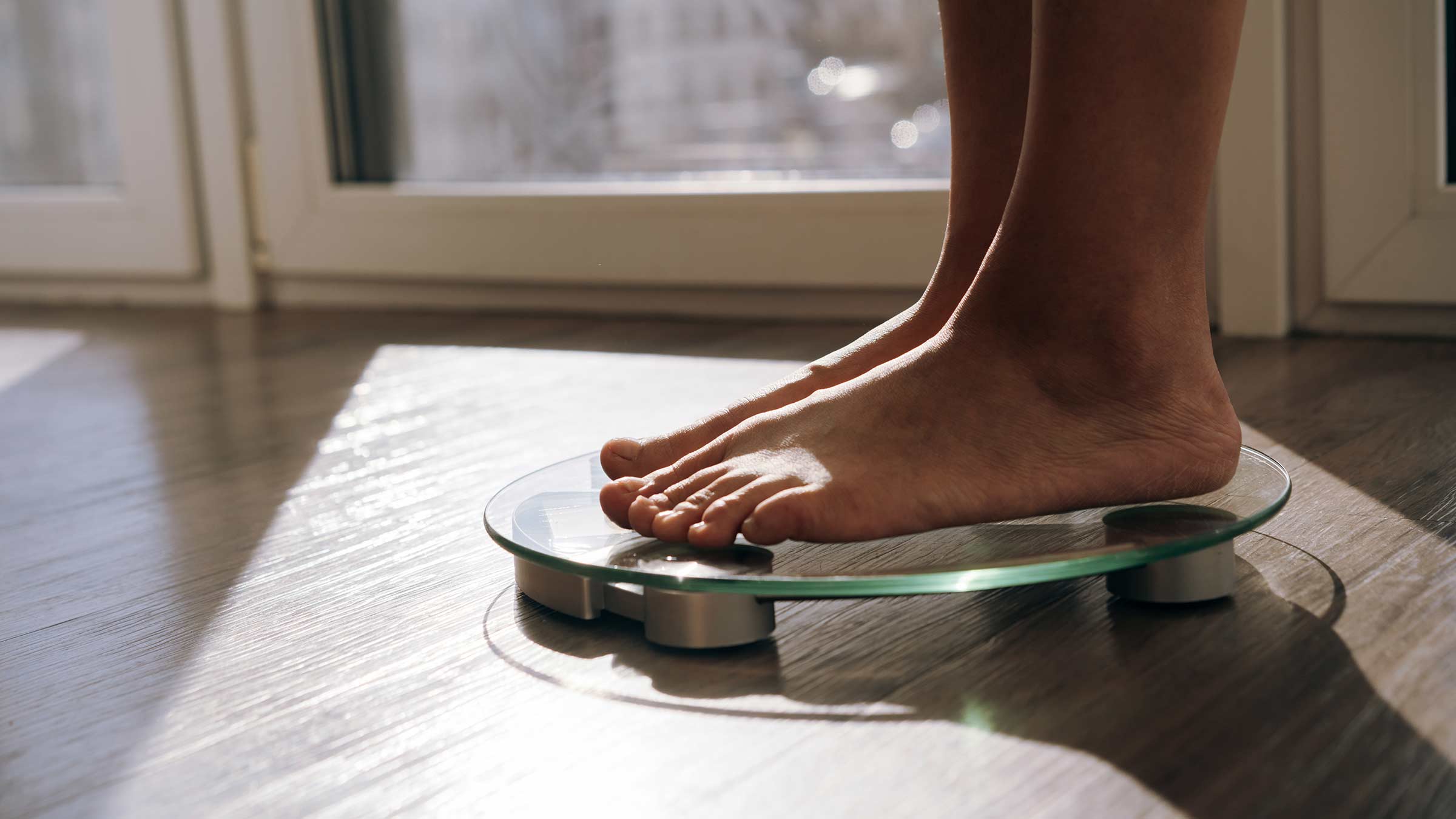
More often than not, women gain weight during menopause.
It’s very common. About 60% of women are over their ideal body mass index (BMI) during the menopause transition. Women are often relieved to hear they’re not the only ones no longer fitting into the jeans they wore a year or two earlier.
Starting in perimenopause, women gain one to two pounds a month, on average. That often can continue through menopause, and sometimes it can be tough to slim down after menopause is over.
Whenever people gain weight, there’s typically not one, but many reasons why.
Causes of weight gain around menopause
- Muscle loss slows down metabolism.
- Changes in gut organisms occur, from aging and hormonal shifts. Both affect how your body absorbs nutrients and how it turns the nutrients into energy.
- A decrease in estrogen and an increase in follicle-stimulating hormone cause your body to accumulate more fat.
- Sleep interruptions from hot flashes and night sweats can keep you from getting enough sleep, which can in turn trigger weight gain.
Menopause happens, on average, at age 51, when a woman goes without a period for at least 12 consecutive months.
Before going into menopause, a lot of women are already over their ideal body weight, so the extra pounds they gain around menopause are especially unwelcome.
What’s more, being overweight can make menopausal symptoms worse. You gain weight and may be less active, which leads to more hot flashes and night sweats. Then that, in turn, can cause you to gain more weight.
Menopause and belly fat
Often, the extra pounds you gain around menopause go to your waistline. Hormonal changes can cause a shift in where fat is stored in your body. It’s common for women after menopause to develop more internal fat, also called visceral fat, in the abdominal area — around their organs such as their liver and intestines.
Though you can’t see fat around your organs, you’ll likely notice if your waistline has expanded. Even if you’re within the ideal body weight range, you still may have visceral fat. That may be because of your diet and lack of exercise as well as the shift in hormones.
Health risks that come with belly fat
Internal fat around organs can increase your risk of:
- high blood pressure
- high cholesterol
- heart disease
- type 2 diabetes
- breast and endometrial cancers
How to combat menopause weight gain and lose excess weight
It’s easy to get overwhelmed if you think: “I need to lose 30 pounds. Stop snacking. Stop smoking. No alcohol. Start exercising.”
Instead, work on one change at a time:
- Establish good sleep habits so you get seven to nine hours of sleep a night.
- Aim for a low-fat diet, high in fruits and vegetables, and low in processed food.
- Reduce portion sizes.
- Exercise 150 minutes at moderate intensity every week.
- Limit or eliminate alcohol, sodas and other high-sugar drinks.
- Address mental health concerns.
- Consider talking to your health care provider about weight loss medications if your own lifestyle changes don’t lead to weight loss.
If you follow these same guidelines in your 30s or early 40s before perimenopause, you may be able to reduce or prevent the extra pounds that can come with menopause. I have seen many people successfully maintain a healthy weight after menopause.
Those who do best at shedding excess weight and keeping it off do it gradually, at the rate of about a pound a week or four pounds a month.
Hormone replacement therapy can lead to weight loss
Taking hormone replacement therapy simply to lose weight is not recommended. Often, the therapy will just redistribute the weight. And for some people, hormone replacement therapy would increase their risk of cancer, strokes and blood clots.
However, if you’re taking hormone replacement therapy for relief from other menopause-related symptoms such as hot flashes or night sweats, you may sleep better and have more energy for exercise, and your health could benefit from losing some weight.
Benefits of weight loss
Once you start losing excess weight, you’ll get more motivated to continue. You’ll feel better. Losing 10 pounds can decrease your blood pressure by five points. Every pound you lose can cause your blood pressure to drop, decreasing your risk for a heart attack or other condition that affects blood flow to your heart.
You might go back and forth between losing weight and then gaining some back. That’s very common. Think of losing weight as an ongoing journey.
A new phase in life
Menopause is a natural part of getting older. It’s not the end of an era, but the beginning of a new chapter. Think about what you want to change in this new chapter: Is it your weight? Is it your marriage? Your relationships with your kids? Your career?
Any kind of change can be tough. Women aren’t always good at asking for help. Don’t be afraid to seek support from your health care provider, your friends and your family. You don’t need to walk through the challenges of weight gain, hot flashes or other menopause symptoms alone.

Ready to learn more about women’s health?
The Center for Women’s Health provides personalized care for women across their lifespans.
Expert care starts here




